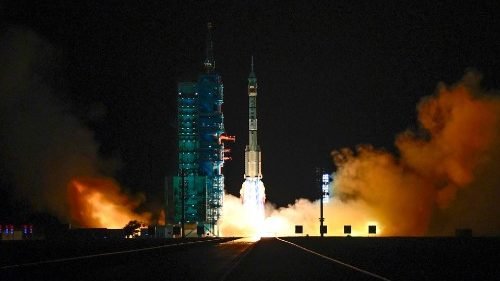The Permanent Observer of the Holy See to the United Nations, Archbishop Gabriele Caccia, urged member states to prioritize international cooperation in outer space activities.
By Phoebe Martel
At the 1968 Conference on the Peaceful Use of Outer Space, Pope Paul VI called on national and commercial actors to center collective prosperity in space exploration efforts.
Since then, the Holy See has continued to stress the need for more cohesive international norms governing space technology.
On October 30, Archbishop Gabriele Caccia, the Holy See’s Permanent Observer to the United Nations, delivered dual statements on space security in New York. Archbishop Caccia spoke during the UN General Assembly’s first and fourth committees on disarmament and special political missions, respectively.
“As we explore the vast potential of outer space, it is essential that States promote its peaceful use as a common good,” the Archbishop said.
Archbishop Caccia expressed particular alarm over member states’ militarization of space, namely via anti-satellite weapons (ASATs). ASATs, which originated in the Cold War space race between the United States and the Soviet Union, are projectiles capable of destroying satellites in the Earth’s orbit. The US placed a moratorium on ASAT testing in 2022, but China and Russia have conducted demonstrations of similar weapons as recently as May 2024.
“It is regrettable that the international community has not achieved a consensus on an agreement to ban all types of weapons in outer space,” Archbishop Caccia said in his address to the UN’s First Committee.
The Archbishop highlighted the UN Conference on Disarmament (CD) as an existing framework where nuclear non-proliferation measures should reflect growing concerns over outer space arms buildup. This year’s CD will take place in Italy.
Archbishop Caccia said that, in the meantime, member states must abide by 1967’s Outer Space Treaty, which states that “the Moon and other celestial bodies shall be used exclusively for peaceful purposes.”



